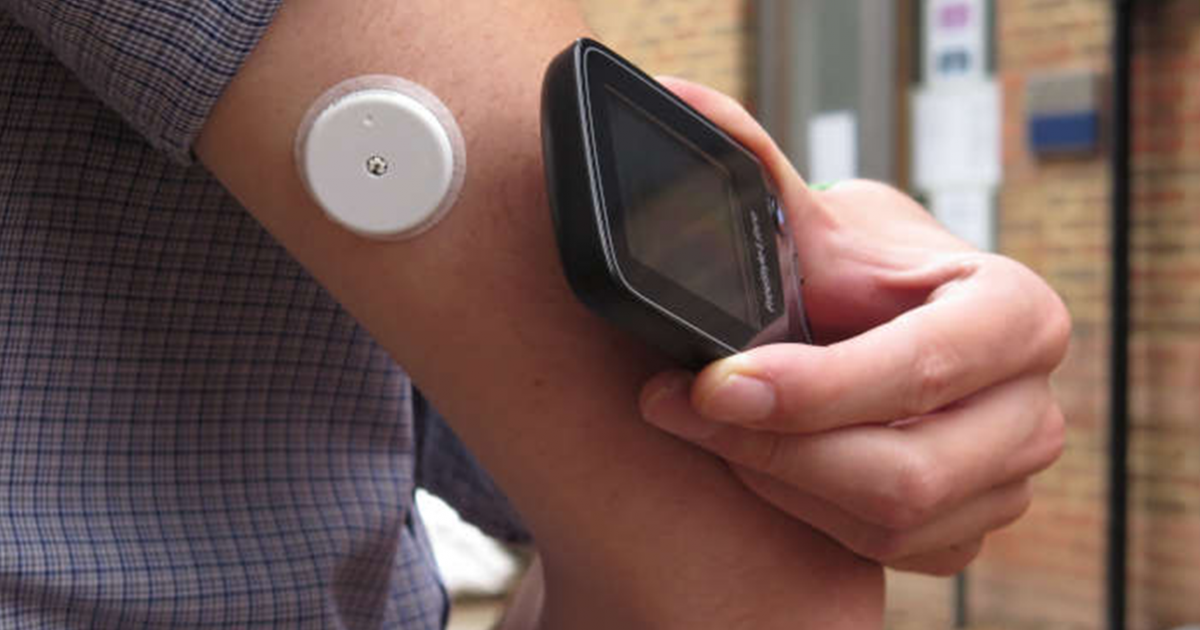Using a FreeStyle Libre helps older people with diabetes and memory loss to more easily monitor their blood glucose, a new study finds.
The FreeStyle Libre flash glucose monitor allows people with diabetes to track their glucose levels without having to prick their fingers.
The system works by automatically reading glucose levels via a small sensor for up to 14 days. The system does not require finger-pricking to produce a reading. Instead, a reading device is scanned against the sensor.
The researchers state that dementia presents additional challenges for people with diabetes, particularly with regard to preventing hypoglycemia (too low blood glucose levels).
The research team, University of East Anglia (UEA), set out to investigate the extent to which flash glucose monitoring could help elderly people with diabetes and dementia.
The team trialled the device on 12 people, with an average age of 85, for two weeks. All of the volunteers had diabetes and known dementia. Nine of the participants were taking insulin.
The researchers reviewed the data taken and conducted interviews to assess the level of usefulness and effectiveness.
Lead researcher Dr Katharina Mattishent, from UEA’s Norwich Medical School, said: “Older people with memory problems can find it more difficult to keep an eye on their blood sugars. Older methods of checking blood sugars rely on people doing finger-prick tests.
“The newest technology works by allowing a sensor inserted under the skin on the arm to pick up sugar readings all the time for up to two weeks without having to do finger-prick tests. The sensor reads sugar levels and transmits them wirelessly to a display on a portable reader held near the sensor – a bit like swiping a contactless bank card.”
The FreeStyle Libre allows more glucose data to be collected, and more easily, than with finger-prick blood glucose tests. The study showed that on average, over 50% of available glucose level data was collected.
Carers reported that the device led to greater ease in monitoring the glucose levels of the participants. The device was received positively in terms of comfort of its use compared to blood glucose testing.
Prof Yoon Loke, from UEA’s Norwich Medical School, said: “Our study found that older people and their carers overwhelmingly found the device to be acceptable to use and reassuring to be able to check sugar levels more easily.
“It didn’t interfere with their day-to-day activities and they were not aware of the device while sleeping at night. Carers spoke favourably about the simplicity of the device. And all of the participants were positive about recommending it to others.”
The study is published in the journal BMJ Open.




